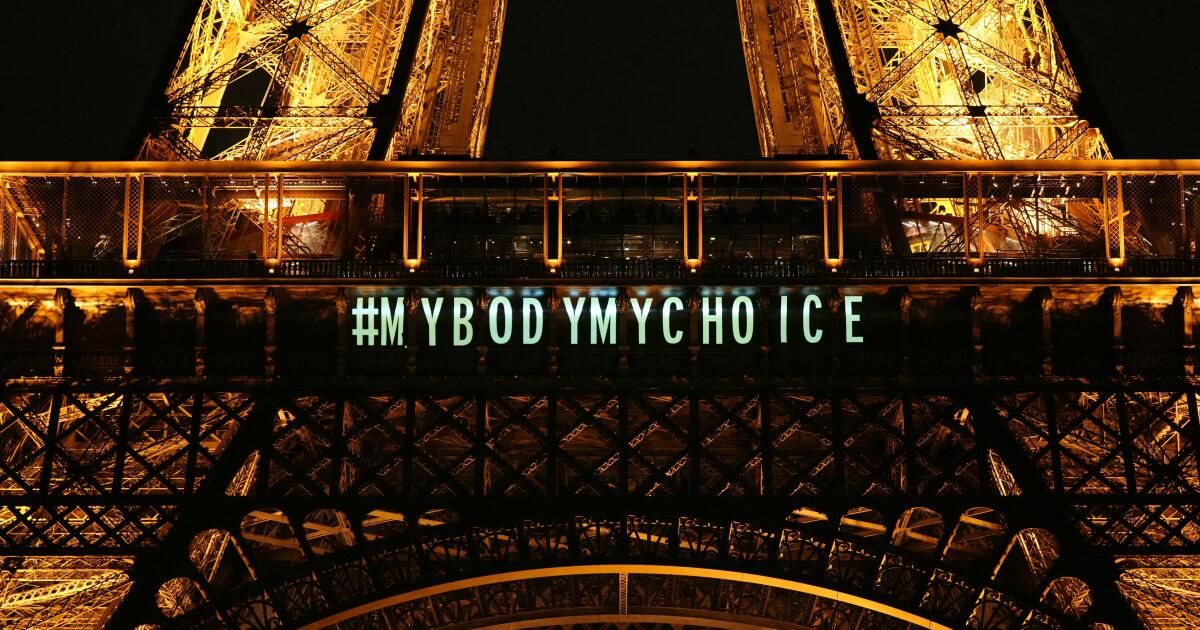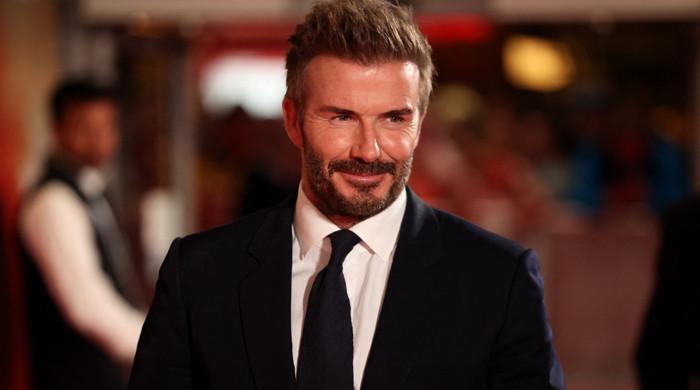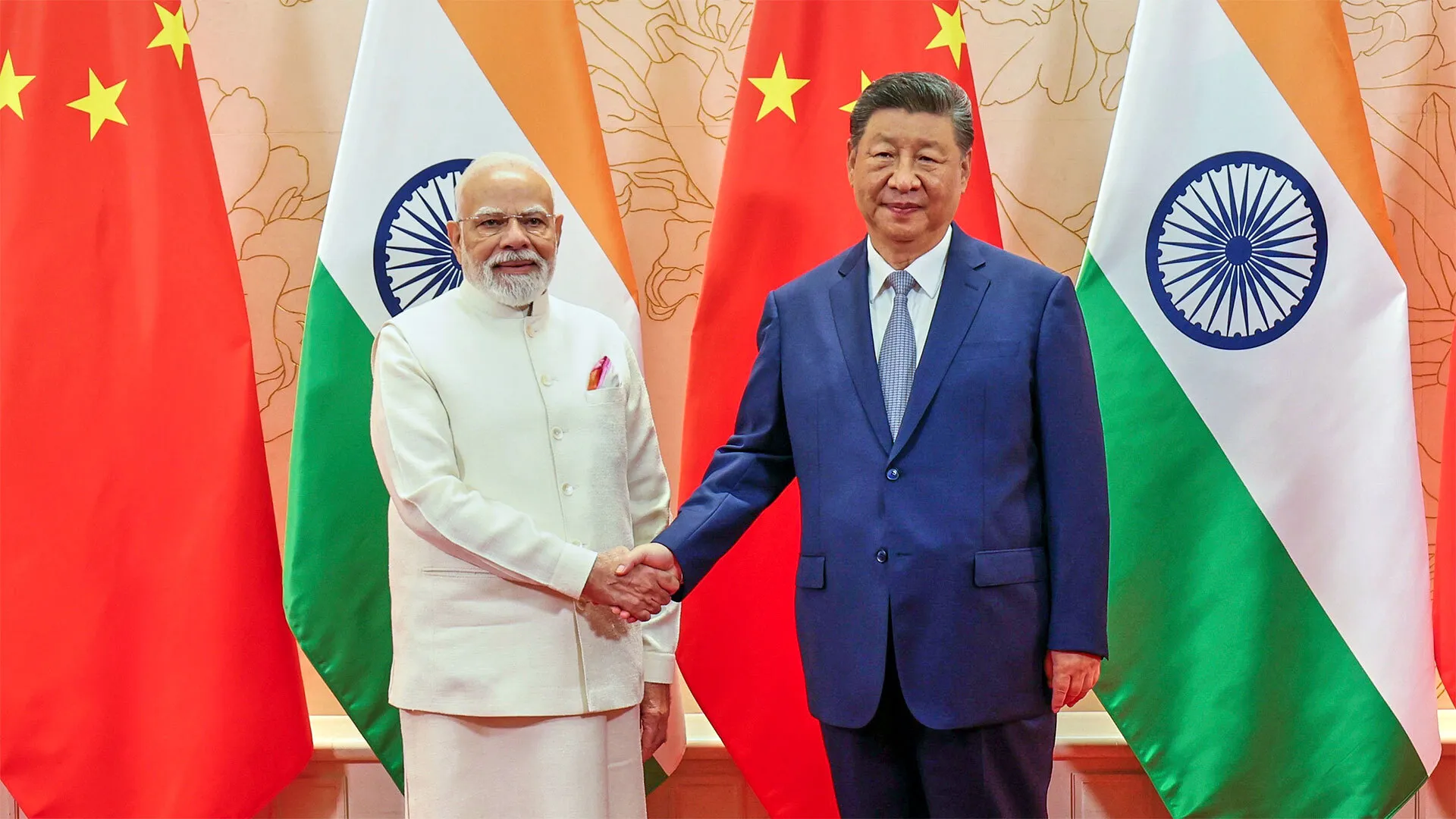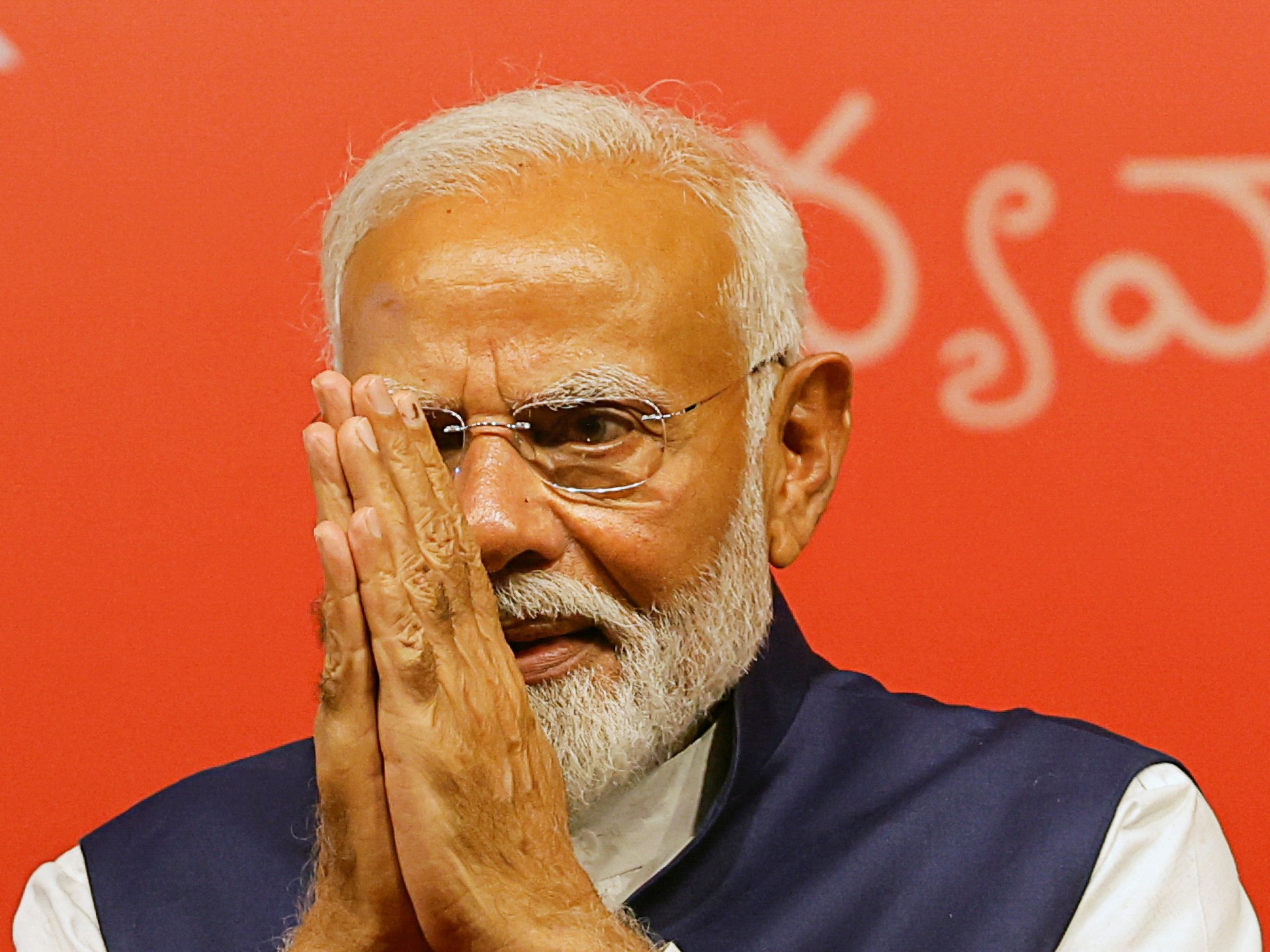The repercussions of the terrible US Supreme Court decision that struck down federal abortion protections have not stopped on our own shores. They have crossed the ocean and resculpted the abortion landscape in countries (well, at least one country) far from our own.
In a landmark decision that was a direct result of the US court's distressing abandonment of a half-century-old right, the French Parliament voted overwhelmingly (780-72) on Monday to enshrine the right to abortion in the country's Constitution.
opinion columnist
Robin Abcarian
In France, unlike the United States, no woman will ever have to worry about losing the right to control her reproductive destiny. It's a magnificent moment!
The vote, which took place at the Palace of Versailles, was followed by a standing ovation, reported Le Monde, the country's most influential newspaper. At night, the Eiffel Tower was illuminated with the message, in English no less, “#MyBodyMyChoice.”
“We are sending the message to all women: your body belongs to you and no one has the right to control it for you,” said Prime Minister Gabriel Attal, 34, the country's first gay prime minister and also its youngest.
This is encouraging news at a time when Americans' reproductive rights are being stripped away in conservative states, and when the Alabama Supreme Court has shocked the country and the fertility industry with its declaration that frozen embryos are children.
“It only takes a moment for everything we thought we had achieved to fade away,” said Yaël Braun-Pivet, the first female president of the French National Assembly, essentially the equivalent of the American House of Representatives.
Unlike in the United States, where cultural conservatives have turned abortion rights into a largely partisan battle, there was no serious partisan opposition to the amendment, which French President Emmanuel Macron had promised to introduce almost as soon as Roe vs. Wade was voided in 2022.
“Abortion is a fundamental right of all women,” she stated at the time. “We have to protect it. “I express my solidarity with the women whose freedoms today are questioned by the Supreme Court of the United States of America.”
Last week, Macron posted on X: “I am committed to making women's freedom to abort irreversible by enshrining it in the Constitution.”
Even Macron's arch-nemesis Marine Le Pen of the far-right National Rally party (formerly the National Front) supported the bill, although with much less enthusiasm than the president and his allies. On Monday she minimized the extraordinary moment: “It is of no use, because no political movement questions abortion. … There is no need to make this a historic day.”
France is traditionally a Roman Catholic country, but the media cites recent polls showing that more than 90% of its citizens support abortion rights and 86% are in favor of enshrining them in the Constitution.
How ironic that France was inspired by the United States, not in a positive way, but in a negative way. They used to admire how we did things around here.
After all, nearly two and a half centuries ago, the French modeled a founding document of their revolution, the 1789 Declaration of the Rights of Man and of the Citizen, on our own 1776 Declaration of Independence.
Two years after our Supreme Court ruled in 1973 that states could not impose restrictions on women seeking an abortion in the first trimester of pregnancy, France followed suit.
The French legalized abortion in 1975 after the notorious case of a 16-year-old girl, Marie-Claire Chevalier, who was raped by a classmate and underwent an illegal abortion. Her rapist handed her over to the police, who turned her in to escape prosecution for stealing a car. He was released, while she was arrested and briefly jailed before her trial, which ended in acquittal. Her case has been called Roe v. Wade of France. Chevalier died of brain cancer in 2022.
Like Roe, the Chevalier case became a cause célèbre.
At the time, France's health minister, Simone Veil, an Auschwitz survivor, embraced the movement to legalize abortion, and when the bill was passed, it became known as the Veil Law.
Shortly before Monday's vote, Attal invoked his name. “We have a moral debt to women,” he said, according to Le Monde. “We have the opportunity to change history. Make Simone Veil proud.”
After the French Parliament passed the bill, Macron said his country had sent a “universal message.”
It's a shame that the message is lost on so many American lawmakers who are determined to roll back women's progress rather than advance it.
Today, to paraphrase Prime Minister Attal, the United States owes a moral debt to France.












